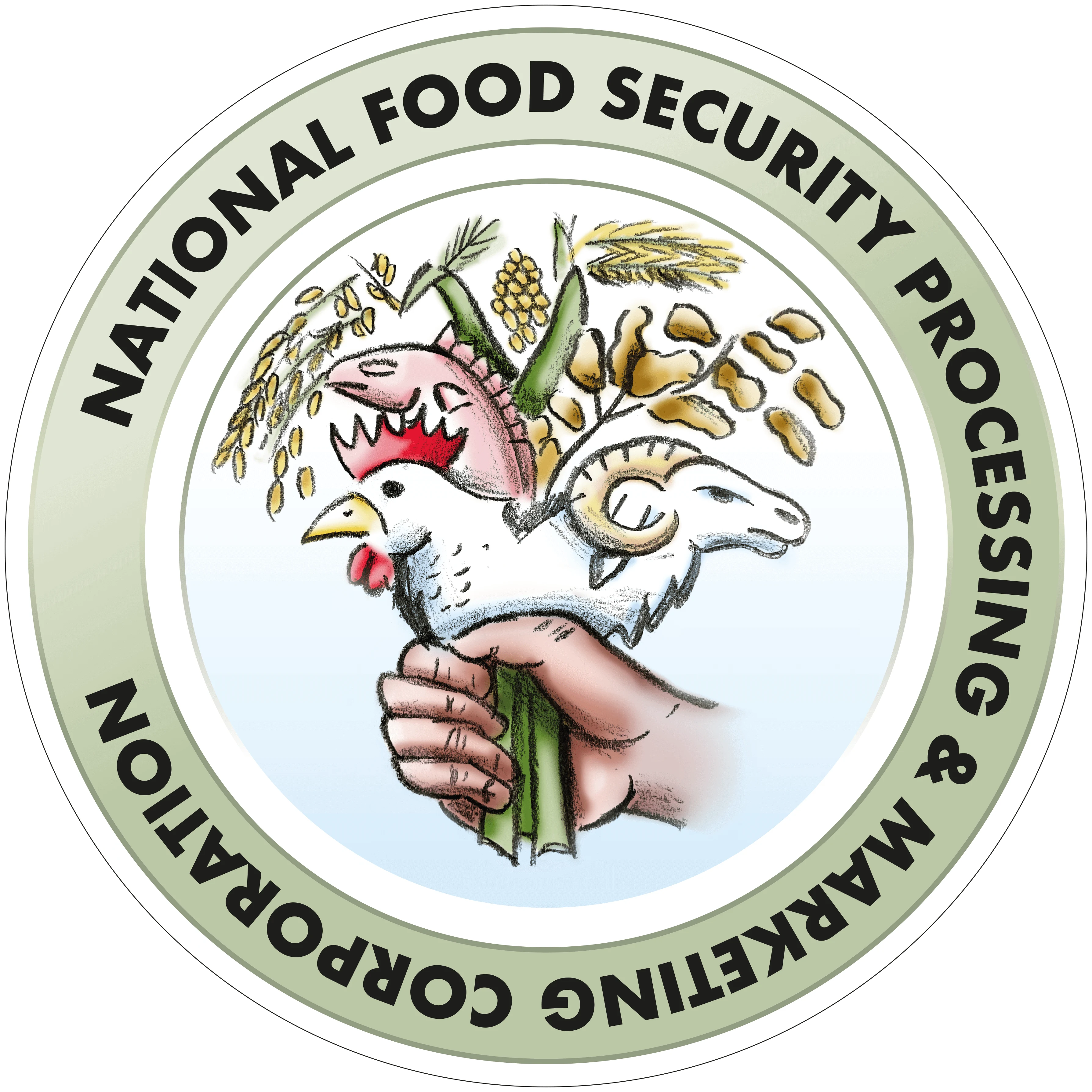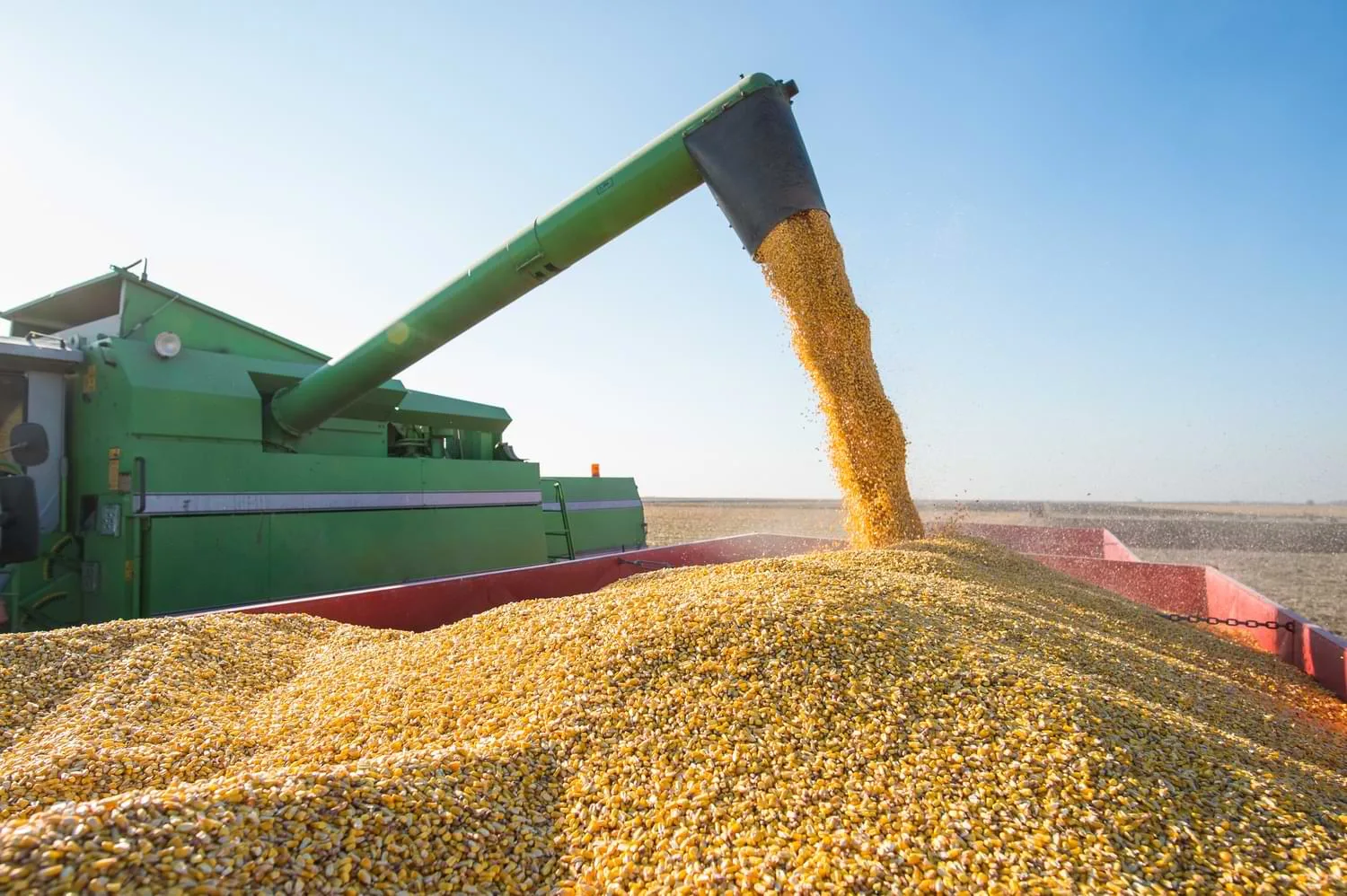The National Food Security Processing Marketing Corporation (NFSPMC) was established with the mandate to enhance food security through the processing, markting, and distribution of agricultural products across the nation
under the National Food Security Act. However, following key reforms in 2005 to modernize the agriculture and food sectors, the corporation's mandate was largely streamlined to focus on food processing. This shift create a more conducive environment for private entities to enter the food marketing and distribution industries,
increasing competition and efficiency in the sector. Additionally, the reforms led to the establishment of separate entities to manage other functions.
The corporation's distribution function evolved into the National Food Distribution Company (NFDC), while its marketing arm transitioned into the National Agricultural Marketing Agency (NAMA), both of which now operate independently but are affiliated with NFSPMC.

The National Food Security Processing Marketing Corporation (NFSPMC), The Gambia, was established with the mandate to support food security through processing, marketing, and distribution of agricultural products across the country.
However, following the promulgation of a major amendment to the Act within the context of the Government's Agricultural Sector Reforms in 2005, NFSPMC’s mandate has now been largely focused on the processing and marketing of agricultural products. This amendment has created an enabling environment to attract private sector participation in the food processing market.
The amendment also hived off certain distribution functions to private entities, while NFSPMC retained its core functions.
Activities and Operations
NFSPMC has diversified its operational portfolio to take advantage of available and sustainable agricultural resources, mainly rice, maize, and groundnuts. The Corporation owns and operates several processing plants with a total output capacity of over 500,000 metric tons annually.
The Corporation also oversees various storage facilities across key regions in The Gambia to ensure proper storage and distribution of food products.
Expansion Activities
As part of NFSPMC's expansion programme, the Corporation is exploring the modernization of existing processing plants and establishing new ones to increase production capacity.
To diversify the Corporation’s operations and assist in achieving the Government’s food security objectives, NFSPMC has formulated policies to develop and operate new processing units in a cost-effective and environmentally sustainable manner.
Partnerships and Collaboration
NFSPMC reaches its stakeholders through collaboration with local farmers, cooperatives, and international partners. These partnerships aim to strengthen food production chains and improve food distribution across The Gambia.
The Corporation's major partners include agricultural cooperatives, private sector players, and international development organizations.
Corporate Social Responsibility
NFSPMC is also committed to ensuring that its operations and activities remain relevant to local communities. Key to the implementation of this strategy is the Corporation's ongoing community development programmes, which provide employability and entrepreneurial skills to persons within affected areas.
The National Food Security Processing Marketing Corporation (NFSPMC) continues to contribute annually towards poverty alleviation initiatives and community development, particularly in rural areas, through its community outreach programmes. Governance and Oversight
The governance of NFSPMC is directed by a board of directors appointed by the government of The Gambia, representing various stakeholders in the agricultural and food processing sectors. The board is responsible for setting strategic goals and ensuring compliance with national policies regarding food security and agricultural development.
To maintain transparency and accountability, NFSPMC submits annual reports and financial statements to relevant government ministries, providing detailed overviews of its operations, performance, and ongoing projects.
Challenges and Opportunities
Despite its significant contributions, NFSPMC faces several challenges, including fluctuating global commodity prices, climate change impacts, and limited access to advanced agricultural technologies. These factors have affected the Corporation’s ability to maximize output in certain years.
However, opportunities abound for NFSPMC to scale up its operations through modernization efforts, particularly in adopting climate-smart agriculture practices and investing in innovative processing technologies. The Corporation is actively seeking partnerships with technology providers and research institutions to introduce best practices that will enhance productivity and food security.
Future Outlook
NFSPMC is positioned to play a pivotal role in The Gambia's future food security framework. By leveraging its infrastructure, expertise, and strategic partnerships, the Corporation aims to increase agricultural productivity, reduce post-harvest losses, and ensure that high-quality food products are accessible to all Gambians.
In the coming years, NFSPMC plans to expand its influence beyond national borders, tapping into regional markets to promote Gambian agricultural products. This move aligns with the government’s vision of transforming The Gambia into a leading exporter of processed food products within West Africa.
Conclusion
Through its commitment to innovation, sustainability, and collaboration, the National Food Security Processing Marketing Corporation (NFSPMC), The Gambia, continues to serve as a cornerstone in the country’s quest for food security and economic empowerment. The Corporation's efforts in processing, marketing, and promoting local agricultural products will remain vital as the nation moves towards achieving its long-term development goals.
NFSPMC will continue to evolve, grow, and meet the challenges of an ever-changing agricultural landscape, ensuring that food security remains a top priority for The Gambia.


